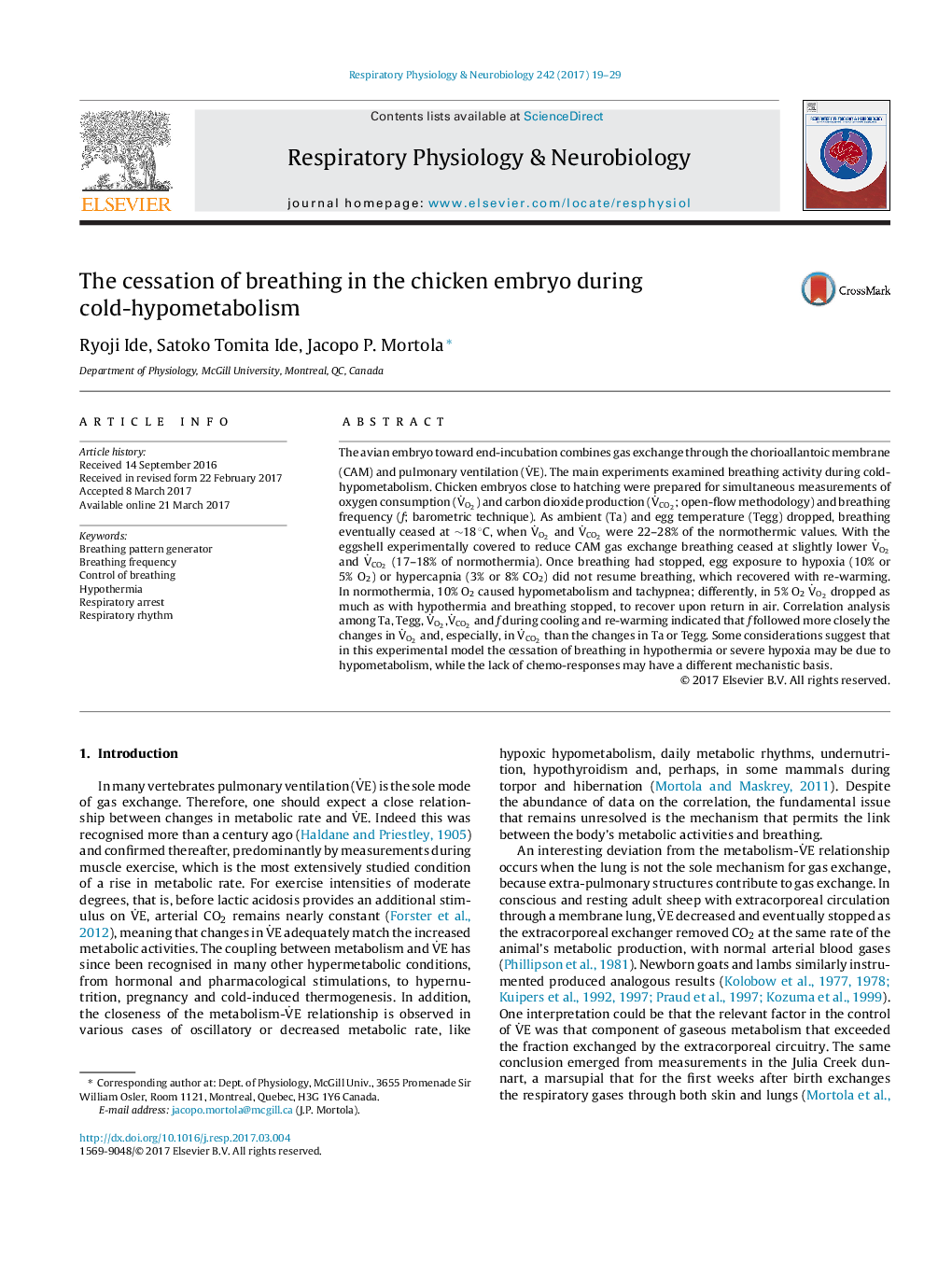| Article ID | Journal | Published Year | Pages | File Type |
|---|---|---|---|---|
| 5594112 | Respiratory Physiology & Neurobiology | 2017 | 11 Pages |
â¢In the dual gas exchanger chicken embryo cooling stopped breathing at metabolic rate â¼20-30% normal.â¢Upon breathing cessation, hypercapnia and hypoxia were ineffective, while breathing resumed with re-warming.â¢In normothermia severe hypoxia decreased metabolism to about 20% normal and stopped breathing.â¢Presumably, gaseous metabolism is essential to maintain breathing rhythmogenesis.
The avian embryo toward end-incubation combines gas exchange through the chorioallantoic membrane (CAM) and pulmonary ventilation (VËE). The main experiments examined breathing activity during cold-hypometabolism. Chicken embryos close to hatching were prepared for simultaneous measurements of oxygen consumption (VËO2) and carbon dioxide production (VËCO2; open-flow methodology) and breathing frequency (f; barometric technique). As ambient (Ta) and egg temperature (Tegg) dropped, breathing eventually ceased at â¼18 °C, when VËO2 and VËCO2 were 22-28% of the normothermic values. With the eggshell experimentally covered to reduce CAM gas exchange breathing ceased at slightly lower VËO2 and VËCO2 (17-18% of normothermia). Once breathing had stopped, egg exposure to hypoxia (10% or 5% O2) or hypercapnia (3% or 8% CO2) did not resume breathing, which recovered with re-warming. In normothermia, 10% O2 caused hypometabolism and tachypnea; differently, in 5% O2VËO2 dropped as much as with hypothermia and breathing stopped, to recover upon return in air. Correlation analysis among Ta, Tegg, VËO2,VËCO2 and f during cooling and re-warming indicated that f followed more closely the changes in VËO2 and, especially, in VËCO2 than the changes in Ta or Tegg. Some considerations suggest that in this experimental model the cessation of breathing in hypothermia or severe hypoxia may be due to hypometabolism, while the lack of chemo-responses may have a different mechanistic basis.
